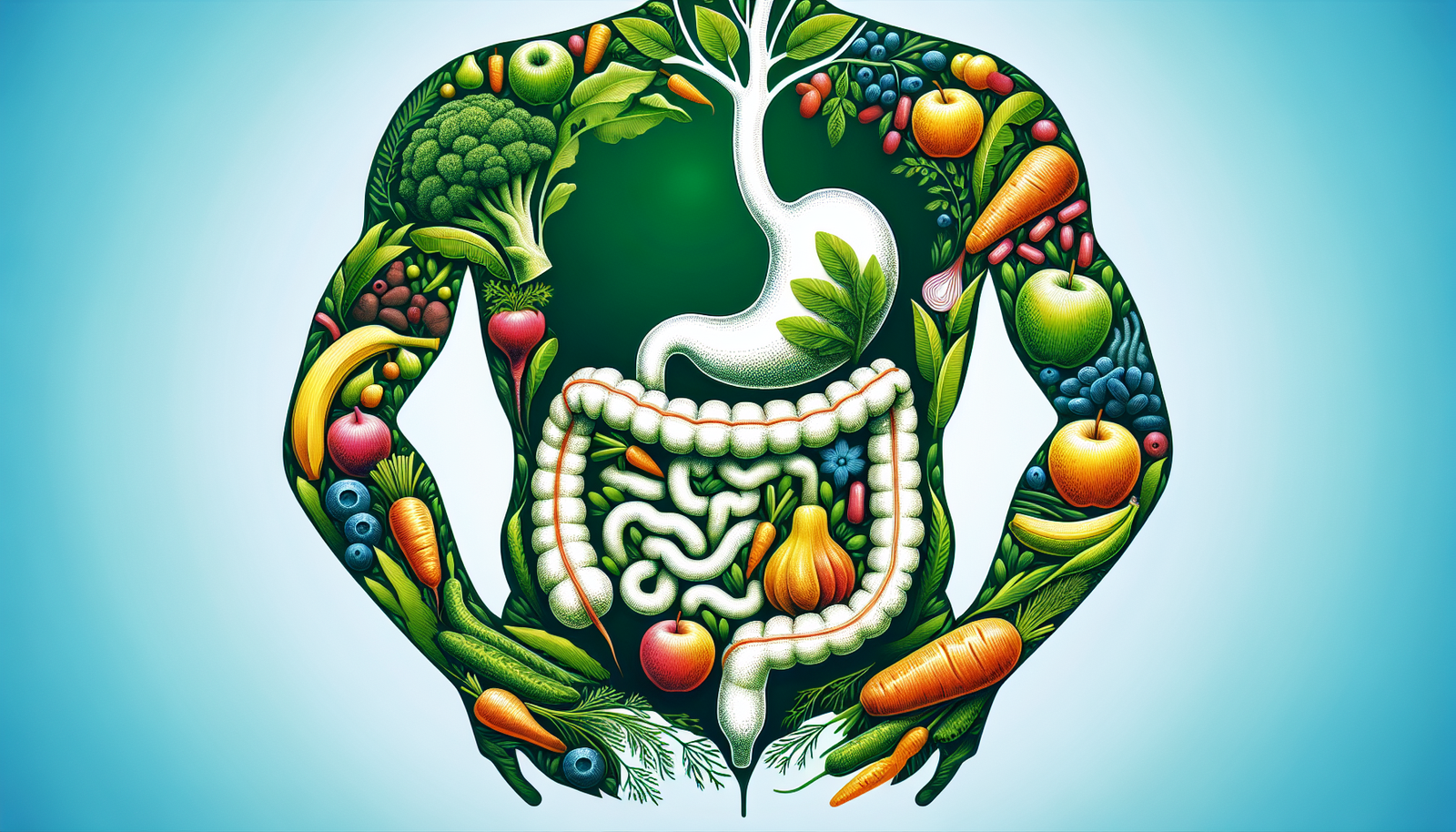How to Enhance Your Gut Flora Through Diet: Tips and Tricks
Understanding Gut Flora: The Importance of a Healthy Microbiome
What is Gut Flora?
Gut flora, also known as gut microbiota, comprises trillions of microorganisms, including bacteria, fungi, archaea, and viruses, residing in the digestive tract. These microorganisms are essential for various bodily functions, influencing metabolism, immune response, and even mental health.
The Role of Diet in Gut Health
Your diet plays a crucial role in shaping the composition and diversity of your gut microbiota. A well-balanced diet rich in specific nutrients can enhance gut flora, leading to improved digestion, enhanced immunity, and better overall health.
Tips for Enhancing Gut Flora Through Diet
1. Increase Fiber Intake
Why Fiber Matters
Fiber serves as a food source for beneficial gut bacteria. Soluble and insoluble fibers promote the growth of probiotics, leading to a diverse microbiome.
Sources of Fiber
- Whole Grains: Oats, barley, brown rice, and quinoa.
- Legumes: Beans, lentils, and chickpeas.
- Fruits: Apples, berries, bananas, and pears.
- Vegetables: Broccoli, carrots, and leafy greens.
2. Include Fermented Foods
Benefits of Fermented Foods
Fermented foods are teeming with live microorganisms that can boost gut health.
Options to Consider
- Yogurt: Look for brands that contain live and active cultures.
- Kefir: A fermented dairy drink rich in probiotics.
- Sauerkraut and Kimchi: Fermented vegetables packed with good bacteria.
- Kombucha: A fermented tea that provides beneficial compounds.
3. Eat a Variety of Foods
The Importance of Diversity
A varied diet supports a diverse microbiome, which is associated with better health outcomes.
Tips for Variety
- Rotate your fruits, vegetables, and grains weekly.
- Incorporate international cuisines that may introduce new ingredients.
- Try foods you haven’t eaten before, such as exotic fruits or grains.
4. Opt for Prebiotic Foods
What Are Prebiotics?
Prebiotics are non-digestible fibers that feed beneficial bacteria in the gut.
Top Prebiotic Foods
- Garlic: A well-known prebiotic that enhances gut flora.
- Onions and Leeks: Also rich in inulin, a type of prebiotic fiber.
- Asparagus: Promotes the growth of beneficial bacteria.
- Bananas: Ripe bananas are a great source of prebiotics.
5. Limit Processed Foods
Impact of Processed Foods
Highly processed foods often contain added sugars, unhealthy fats, and preservatives that can harm gut bacteria.
What to Avoid
- Sugary snacks and beverages.
- Foods high in trans fats.
- Packaged and fast foods that are low in nutrients.
6. Stay Hydrated
Water and Microbiome Balance
Staying hydrated is vital for maintaining gut health. Water helps with digestion and ensures that the gastrointestinal tract functions smoothly.
Hydration Tips
- Aim for at least 8 cups of water per day.
- Include herbal teas and broths for added hydration.
7. Incorporate Nuts and Seeds
Nutritional Benefits
Nuts and seeds are not only nutritious but also support gut health through their healthy fats and fiber.
Types to Include
- Almonds: Rich in fiber and healthy fats.
- Walnuts: A source of omega-3 fatty acids.
- Flaxseeds: High in both fiber and omega-3s.
8. Embrace Plant-Based Foods
Why Plant-Based?
Plant-based diets tend to be higher in fiber and lower in saturated fats, promoting a healthier microbiome.
Suggestions for Inclusion
- Opt for legumes, whole grains, and plenty of fruits and vegetables.
- Consider meatless days to encourage plant-based eating habits.
9. Maintain a Balanced Gut pH
The Role of pH
The gut’s acidity level can affect the growth of beneficial or harmful bacteria. A balanced diet can help in maintaining an optimal pH level.
Foods to Stabilize pH
- Incorporate more alkaline foods like spinach, kale, and avocados.
- Reduce acid-forming foods such as processed sugars and excessive protein.
10. Consume Omega-3 Fatty Acids
Why Omega-3s Are Important
Omega-3 fatty acids can improve gut health and reduce inflammation, which is crucial for a healthy microbiome.
Sources of Omega-3
- Fatty fish: Salmon, mackerel, and sardines.
- Flaxseeds and chia seeds.
- Walnuts.
11. Limit Antibiotic Use
The Impact of Antibiotics
While antibiotics are necessary for treating infections, their overuse can disrupt the gut microbiota balance by eliminating both bad and good bacteria.
What You Can Do
- Only use antibiotics when prescribed by a healthcare professional.
- Consider probiotics during and after antibiotic treatment to support gut health.
12. Manage Stress Levels
Stress and Gut Health
Chronic stress can negatively affect gut bacteria, leading to gut dysbiosis. Managing stress contributes to a healthier microbiome.
Stress-Reduction Techniques
- Practice mindfulness and meditation.
- Engage in regular physical activity.
- Ensure adequate sleep every night.
13. Regularly Monitor Your Gut Health
Keeping Track of Changes
Pay attention to how your diet affects your gut. Keeping a food diary may help you identify which foods promote or hinder your gut health.
Consider Gut Health Testing
There are at-home testing kits available that can analyze your gut flora. Consulting with a healthcare professional can guide effective dietary changes based on the results.
14. Be Mindful of Your Habits
The Importance of Healthy Eating Habits
Your eating habits can also affect your gut flora. Mindful eating improves digestion and overall well-being.
Tips for Mindful Eating
- Eat slowly and chew your food thoroughly.
- Avoid distractions while eating.
- Recognize hunger and fullness cues to prevent overeating.
15. Include Dark Chocolate
Surprising Gut Benefits
Dark chocolate contains prebiotics that can stimulate the growth of good bacteria while also providing antioxidants.
Ideal Choices
- Choose dark chocolate with at least 70% cocoa content.
- Enjoy in moderation as part of a balanced diet.
16. Try Bone Broth
Nutritional Value of Bone Broth
Bone broth is rich in collagen and amino acids, promoting gut healing and supporting gut integrity.
Homemade Bone Broth Recipe
- Simmer bones (chicken, beef, or fish) in water for up to 24 hours.
- Add vegetables and herbs for flavor and added nutrition.
17. Be Wary of Dairy Alternatives
Choosing Dairy Alternatives
Not all dairy substitutes support gut health. Opt for those that contain live cultures similar to traditional dairy products.
Safe Alternatives
- Almond milk with added live cultures.
- Coconut yogurt with probiotics.
18. Don’t Forget About Spices
Spices That Support Gut Health
Certain spices have anti-inflammatory and antimicrobial properties that can benefit your gut flora.
Key Spices to Use
- Ginger: Aids in digestion and may reduce gut inflammation.
- Turmeric: Known for its anti-inflammatory benefits and supporting microbiota balance.
19. Avoid Artificial Sweeteners
The Effect of Artificial Sweeteners
Some studies suggest that artificial sweeteners may negatively influence gut bacteria and lead to glucose intolerance.
Healthier Alternatives
- Use natural sweeteners like honey, maple syrup, or dates in moderation.
20. Cook with Extra Virgin Olive Oil
Benefits of Olive Oil
Extra virgin olive oil is rich in polyphenols, which can benefit gut health and promote the growth of beneficial bacteria.
Usage Tips
- Use for salad dressings or drizzling over vegetables and grains.
- Avoid heating it to keep its health benefits intact.
21. Incorporate Probiotic-Rich Foods into Snacks
Smart Snacking
Instead of reaching for processed snacks, try incorporating probiotic-rich foods into your snack rotation.
Snack Ideas
- Greek yogurt with fruit and nuts.
- Hummus with veggie sticks.
- Smoothies blended with kefir and spinach.
22. Be Consistent
The Importance of Consistency
Consistent dietary practices yield better results in enhancing gut flora over time.
Building Sustainable Habits
- Create a weekly meal plan to ensure the inclusion of gut-friendly foods.
- Remain patient and attentive to how dietary changes impact your gut health over time.
23. Read Labels
Understanding Nutrition Labels
When purchasing packaged foods, read labels to ensure they contain beneficial ingredients for gut health.
What to Look For
- Check for live cultures in dairy products.
- Avoid additives and preservatives that may harm gut health.
24. Seek Professional Guidance
Why Consult with a Professional?
Food sensitivities and intolerances may affect your gut flora. Consulting a registered dietitian or healthcare provider can help tailor an approach best suited for you.
Professional Support
- Receive personalized dietary plans.
- Get advice on specific food intolerances you may have.
25. Stay Informed on Emerging Research
Gut Health Research
Science on gut health is ever-evolving. Staying informed will help you make better dietary choices.
Resources for Research
- Consult reputable health websites.
- Read scientific journals focused on microbiome studies.
Maintaining a healthy gut flora through diet requires attention to what you eat and how you approach your meals. By adopting these tips and practices, you can enhance your gut health naturally, leading to better overall wellness.








